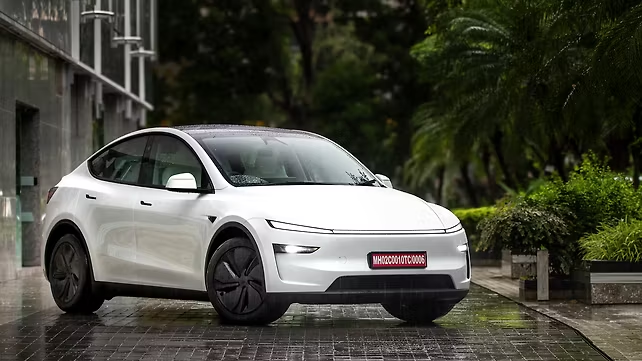In 2024, the landscape of personal transportation is more diverse than ever. With electric vehicles (EVs) continuing to rise in popularity, hybrids offering a middle ground, and gas cars still dominating many markets, the decision of which car to choose can be daunting. A recent report from Bloomberg Green highlights that EV sales are expected to account for 30% of global car sales by 2025, underscoring their growing influence. This article will guide you through the advantages and disadvantages of EVs, hybrids, and gasoline-powered vehicles, helping you make an informed decision based on your lifestyle and priorities.
Understanding the Options: EVs, Hybrids, and Gas Cars
What Are Electric Vehicles (EVs)?
Electric vehicles, or EVs, are cars powered entirely by electricity. They use large battery packs to store energy, which powers an electric motor. Brands like Tesla, Rivian, and the new Hyundai Ioniq range are leading the charge in EV innovation. Here are some key points:
- Zero Emissions: EVs produce no tailpipe emissions, making them a top choice for environmentally conscious consumers.
- Lower Operating Costs: With fewer moving parts and cheaper “fuel” (electricity), EVs often cost less to maintain and operate.
- Charging Infrastructure: Thanks to companies like Tesla and ChargePoint, charging networks are expanding rapidly, making it easier to travel long distances.
Hybrids: The Best of Both Worlds?
Hybrid vehicles combine a gasoline engine with an electric motor and battery. This setup provides the flexibility of a gas car with some benefits of EVs. Toyota’s Prius and Ford’s Escape Hybrid are popular models in this category.
- Improved Fuel Efficiency: Hybrids offer better mileage than traditional gas cars, making them a cost-effective option for those not ready to go fully electric.
- Lower Emissions: While not as clean as EVs, hybrids emit significantly less CO2 than gas cars.
- Versatility: Hybrids can switch between gas and electric power, reducing range anxiety associated with EVs.
The Traditional Gasoline Car
Despite the rise of EVs and hybrids, gasoline cars remain prevalent. They are often seen as reliable and convenient due to the extensive refueling infrastructure.
- Widespread Availability: Gas stations are everywhere, eliminating any range concerns.
- Lower Initial Cost: Generally, gas cars have a lower purchase price compared to EVs and hybrids.
- Familiarity: Drivers are more familiar with gas vehicles, which can make them more comfortable for some.
Practical Comparison: Pros and Cons
Electric Vehicles (EVs)
Pros:
- Environmental Impact: No tailpipe emissions.
- Running Costs: Cheaper to “fuel” and maintain.
- Technology: Advanced features and connectivity.
Cons:
- Initial Cost: Higher upfront purchase price.
- Charging Time: Longer refueling time compared to gas stations.
- Range: Limited by battery capacity, though improving.
Hybrids
Pros:
- Fuel Efficiency: Better mileage than gas cars.
- Flexibility: Can run on gas if needed.
- Lower Emissions: Reduced carbon footprint.
Cons:
- Complexity: More components mean potentially more maintenance.
- Cost: Often more expensive than gas cars.
- Battery Life: Concerns about long-term battery health.
Gasoline Cars
Pros:
- Infrastructure: Extensive network of refueling stations.
- Initial Cost: Generally cheaper to purchase.
- Performance: Often have higher horsepower engines.
Cons:
- Environmental Impact: Significant CO2 emissions.
- Operating Costs: Gas prices can fluctuate significantly.
- Maintenance: More moving parts can lead to higher maintenance costs.
Making the Right Choice: Factors to Consider
Budget and Financial Incentives
- Initial Purchase Price: EVs tend to be more expensive upfront but offer savings over time through lower fuel and maintenance costs.
- Government Incentives: Check for federal and state incentives for EVs and hybrids. These can significantly reduce the cost.
Driving Habits and Lifestyle
- Daily Commute: EVs are ideal for city driving and short commutes due to their efficiency in stop-and-go traffic.
- Long-Distance Travel: If frequent long-distance travel is required, a hybrid might offer the best balance of range and efficiency.
Environmental Impact
- Sustainability Goals: If reducing your carbon footprint is a priority, an EV is the most environmentally friendly option.
- Local Regulations: Some cities are implementing stricter emission regulations, which could favor EVs over time.
Conclusion: The Road Ahead
Choosing between an EV, hybrid, or gas car in 2024 boils down to personal preferences, lifestyle, and budget. Electric vehicles, with their rapid technological advancements and environmental benefits, are an excellent choice for those looking to future-proof their transportation. Hybrids offer a balanced approach for those not ready to commit fully to electric, while gasoline cars remain a practical option for those prioritizing cost and infrastructure.
As we move towards a more sustainable future, the trend clearly leans towards electric. However, each category has its merits, and the best choice is one that aligns with your specific needs. What will you choose for your next car? Let us know in the comments below, and join the conversation about the future of transportation.

